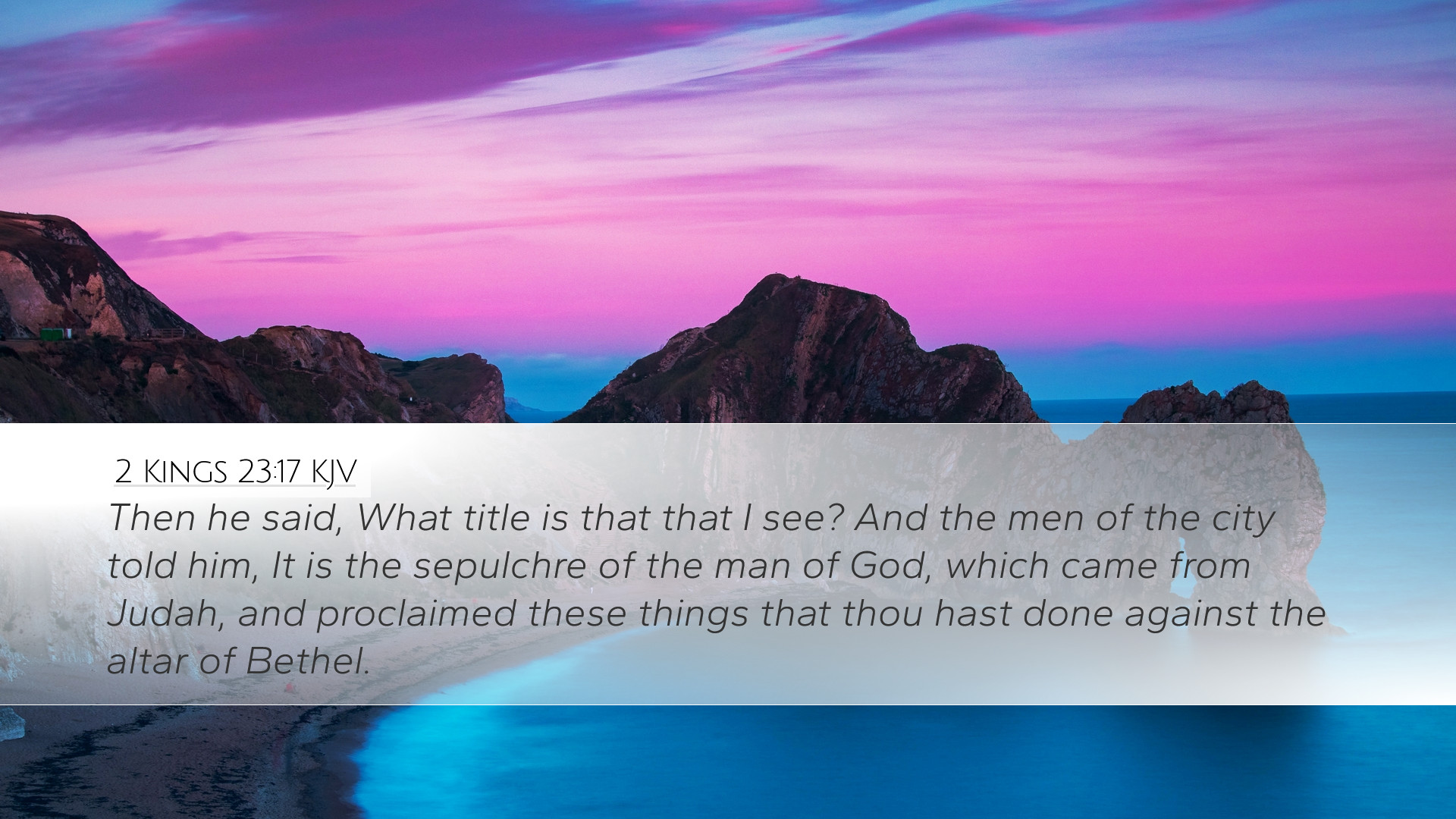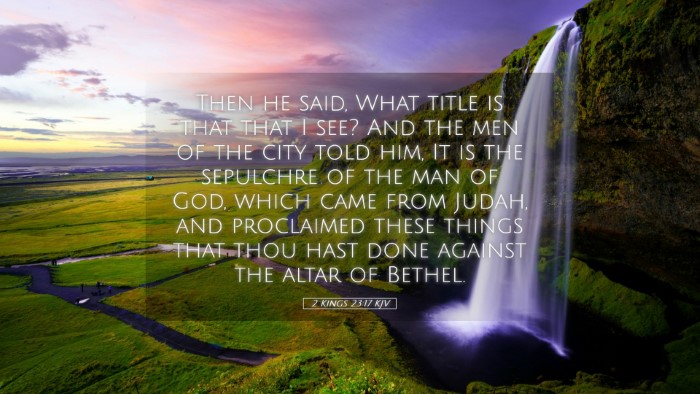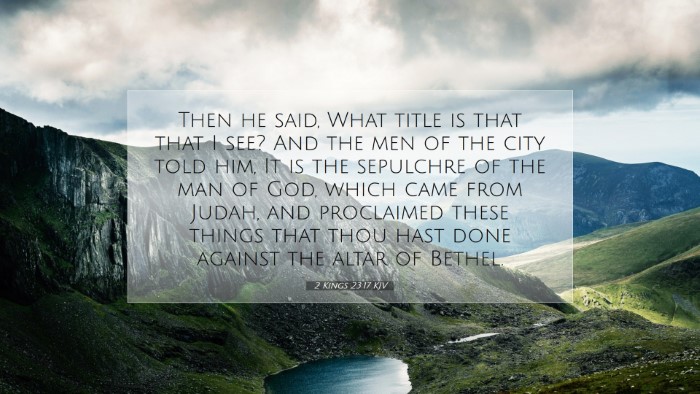Commentary on 2 Kings 23:17
Verse Summary: "Then he said, What is that monument that I see? And the men of the city told him, It is the sepulchre of the man of God, which came from Judah, and proclaimed these things that thou hast done against the altar of Bethel."
Contextual Background
2 Kings 23 recounts the reforms instigated by King Josiah of Judah. After discovering the Book of the Law in the temple, Josiah is moved to restore true worship to Yahweh. This chapter highlights the zealous attempts to eradicate idolatry and return to covenant fidelity. The mention of the "man of God from Judah" in this verse links back to a prophetic act against the altar at Bethel.
Insights from Public Domain Commentaries
Matthew Henry's Commentary
Matthew Henry highlights that this scripture illustrates the recognition of divine warnings through prophetic figures. The monument refers not only to a physical marker but emphasizes the significance of prophecy in Judean history. Henry notes:
- It serves to remind the people of God's judgment against unfaithfulness.
- The "man of God" symbolizes the prophetic voice that was sent to declare God’s will and instruct his people.
- Henry asserts that Josiah’s question reflects a deepening concern for righteous worship and eradicating idolatrous practices.
Albert Barnes' Notes on the Bible
Barnes provides a thorough examination of the historical implications of the sepulchre. He posits that:
- This instance underscores the enduring memory of prophetic actions and their results upon the nation.
- The sepulchre stands as a testimony to God’s authority and the fulfilling of prophecy.
- He draws parallels between Josiah's reforms and the previous prophecies, emphasizing that the faithfulness of God to His word remains constant.
Adam Clarke's Commentary
Clarke offers a more nuanced exploration of the people's reverence towards the "man of God’s" grave. He theorizes:
- The sepulchre not only serves as a memorial but also as a channel through which God's providence is acknowledged and revered.
- Clarke notes the behavior of the locals in remembering the prophet and suggests this reflects a latent acknowledgment of Yahweh’s unique role in their history.
- He posits that this grave serves to remind the Israelites of their covenant obligations to Yahweh, framed within their collective memory.
Theological Reflections
This verse encapsulates significant theological themes, including the importance of prophetic voices within the life of God’s people. It emphasizes:
- Prophecy and Memory: The lasting impact of prophetic ministry, as seen in how the people react to the reference of the "man of God."
- Covenant Faithfulness: The necessity of remembering those who have gone before and what they taught regarding faithfulness to God's commandments.
- Idolatry and Reform: In the context of Josiah’s reform, this acknowledgment serves as a poignant call to repentance and a return to faithfulness.
Practical Applications
For contemporary readers, including pastors, theologians, and students, there are several practical applications of this verse:
- Reflecting on the significance of prophetic voices in our lives and how these messages shape our understanding of God’s will.
- Encouraging a deeper personal connection to biblical history and the prophetic tradition as a model for ministry today.
- Examining the importance of collective memory in the community of faith, recalling those who have faithfully proclaimed God's truth.
Conclusion
2 Kings 23:17 stands as a poignant reminder of the vital role of prophecy and the ongoing call to faithfulness among the people of God. The insights from Matthew Henry, Albert Barnes, and Adam Clarke enhance our understanding of this verse and its broader implications within Scripture. As we strive to be followers of Christ, let us heed the lessons from the past, remembering the faithful voices and our covenantal responsibilities today.


